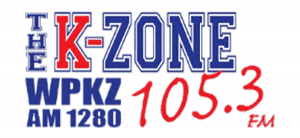It’s a busy weekend at the Fitchburg Museum of Art as three exhibits open to the public on Saturday, and the opening receptions for all is on Friday, June 27 from 6-8 p.m.
Columns
Stages: Free Fun for Kids, classes, and more at Hanover crush summer boredom
Summer officially starts tomorrow, and that means lazy, hazy, crazy days, trips to the beach or pool (if you’re lucky), and bored, cranky kids by the 4th of July. But not to worry. The Lowell Summer Music Series and Worcester’s Hanover Theatre and Conservatory have you covered with free concerts and more.
Stages: Summer theatre lineups at NSMT and Peterborough Players
The temps this week belie the fact that summer is here, but the calendar and Memorial Day weekend can’t hide the fact that the warm season’s here. With warmer weather, thoughts turn to getting away to the beach or mountains and all that goes with it, including summer theater. North Shore Music Theatre (NSMT), the theater-in-the-round in Beverly, brings “Waitress” to audiences June 3-15. “In recent years, “Waitress” has become one of the most beloved and widely acclaimed musicals around the world. I feel we have gathered the right ingredients to bring this production to life and honor the heart […]
Eye on Art: FAM honors Spanish speakers and their dreams in new public art exhibit
The inaugural installation of public art on the Fitchburg Art Museum’s façade is up and eliciting positive comments. Cuban American artist and educator Gabriel Sosa considers the stories of Spanish-speaking residents in Central Massachusetts, contemporary visual culture in downtown Fitchburg, and the complexities of the American Dream. Entitled “La bodega de mis sueños (The bodega of […]
Eye on Art: ‘Final Export’ showcases work of UML’s art and design graduates
The UMass Lowell Department of Art and Design will present “Final Export: Spring 2025 Graphic Design BFA Exhibition.” The exhibit will be on display in the University Gallery and Mahoney Gallery, all in Mahoney Hall, located on UMass Lowell’s South Campus at 870 Broadway Street in Lowell. The exhibition will run through April 26. All […]
Stages: Neary’s ‘Take Ten Two’ a laugh-fest at Firehouse Center
“This one is all for laughs.”
